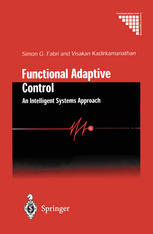

Most ebook files are in PDF format, so you can easily read them using various software such as Foxit Reader or directly on the Google Chrome browser.
Some ebook files are released by publishers in other formats such as .awz, .mobi, .epub, .fb2, etc. You may need to install specific software to read these formats on mobile/PC, such as Calibre.
Please read the tutorial at this link: https://ebookbell.com/faq
We offer FREE conversion to the popular formats you request; however, this may take some time. Therefore, right after payment, please email us, and we will try to provide the service as quickly as possible.
For some exceptional file formats or broken links (if any), please refrain from opening any disputes. Instead, email us first, and we will try to assist within a maximum of 6 hours.
EbookBell Team

4.4
62 reviewsThe field of intelligent control has recently emerged as a response to the challenge of controlling highly complex and uncertain nonlinear systems. It attempts to endow the controller with the key properties of adaptation, learn ing and autonomy. The field is still immature and there exists a wide scope for the development of new methods that enhance the key properties of in telligent systems and improve the performance in the face of increasingly complex or uncertain conditions. The work reported in this book represents a step in this direction. A num ber of original neural network-based adaptive control designs are introduced for dealing with plants characterized by unknown functions, nonlinearity, multimodal behaviour, randomness and disturbances. The proposed schemes achieve high levels of performance by enhancing the controller's capability for adaptation, stabilization, management of uncertainty, and learning. Both deterministic and stochastic plants are considered. In the deterministic case, implementation, stability and convergence is sues are addressed from the perspective of Lyapunov theory. When compared with other schemes, the methods presented lead to more efficient use of com putational storage and improved adaptation for continuous-time systems, and more global stability results with less prior knowledge in discrete-time sys tems.